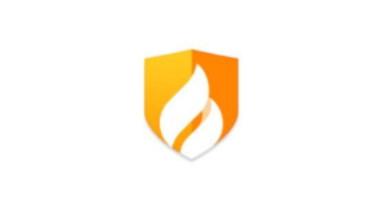A Detailed Overview of Key Stage 3: A Guide for Parents and Students

dy Evelyn Independent School, we recognise this critical stage as when students transition from the foundational skills acquired in primary education to more structured and advanced learning methodologies. In Key Stage 3, pupils are introduced to a broad and balanced curriculum that sets the stage for their future academic success and personal growth.
The national curriculum for Key Stage 3 is designed to equip students with a wide range of skills and knowledge essential for their development. It covers core subjects, including English, mathematics, and science, alongside humanities, arts, and languages. This comprehensive educational framework ensures that each pupil can build on their existing abilities and achieve new levels of understanding.
The Importance of Curriculum Objectives
The curriculum objectives at Key Stage 3 aim to foster critical thinking, problem-solving, and independent study skills. These objectives are crucial in preparing students for the next educational milestone and nurturing them into well-rounded individuals. The curriculum not only focuses on academic achievement but also prioritises personal and social development, equipping students with essential life skills.
Transitioning and Adaptation for Students
Transitioning to Key Stage 3 can be a challenging yet rewarding experience for students. At Lady Evelyn Independent School, we implement a supportive approach that helps students adapt to new learning environments and teaching methods. Our dedicated teachers provide tailored instruction to meet the diverse needs of each student, encouraging them to engage with the curriculum actively and develop a passion for learning.
Key Performance Indicators and Progress
Schools like Lady Evelyn use a well-structured assessment system to track the progress of students throughout Key Stage 3. Regular assessments allow teachers to measure student performance against national standards, ensuring that each pupil is on the right track to achieve their educational goals. These assessments not only highlight areas of success but also identify opportunities for improvement, enabling teachers to provide targeted feedback and support.
In summary, Key Stage 3 at Lady Evelyn Independent School is a crucial stage of education that lays the foundation for lifelong learning. Through a well-rounded curriculum, tailored teaching, and rigorous assessment, we strive to nurture our students’ academic abilities and personal growth, preparing them for future success in Key Stage 4 and beyond.
What does Key Stage 3 involve?
Key Stage 3 is one of the three phases of education in England and Wales. It usually involves students aged 11 – 14 and includes years seven, eight, and nine of schooling. It marks the beginning of secondary education and facilitates the progression of students who enroll at Key Stage Two (ks2) in Primary Education. At this time, students take more subjects, which prepares them for a more in-depth study later.
The Importance of Key Stage 3 in Education
Key Stage 3 is significant since it equips learners for the challenges they will encounter in Key Stage 4, including the General Certificate of Secondary Education examinations. It’s the stage where students are supposed to find their passion as they engage in critical thinking and build academic self-efficacy. Students who succeed in KS3 are highly likely to achieve at later points in education.
Curriculum Overview for Key Stage 3
We have made sure that the curriculum of KS3 is broad and balanced. Therefore, the students can have a more holistic education. Students will be exposed to what they will be taught in class.
Core Subjects in Key Stage 3
Core Subsic does not include all of these; therefore, each student can be expected to learn in KS3 the basic subjects common to every child. These three subjects include English, mathematics,s and sciScienceEnglish
English at KS3 is primarily based on literacy skills. Students read various texts, including novels, plays, and poetry. In addition to their literature, students aim to improve their writing and speaking skills so that they are ready for KS4.
Mathematics
Mathematics in KS3 is a building block of what students previously learned in primary school math. In this way, students can learn advanced concepts such as algebra, geometry, and statistics. Problem-solving and analytical thinking are among the aspects that take the stage of the KSEM curriculum at this level.
Science
The third core subject is Science, which is mainly subdivided into three parts: Biology, Chemistry, and Physics. The main objectives of KS3 science are to foster an interest in the natural environment and pave the way for the thorough studies that are to come in KS4.
Foundation Subjects and Their Roles
As much as there are core subjects, KS3 students are not just sitting through core subjects but also learning several foundation subjects. These subjects contribute to completing their education and gaining a broader perspective.
History
The subject of history in KS3 is comprehensive as it embraces all the historical periods and happenings, including the ancient and current periods. The objective is to increase the student’s awareness of the historical context and its implications in the present.
Geography
In KS3, subjects such as physical geography and human geography are taught. They understand new places, people, and the problems directly impacting on a global scale – Global warming and urbanization.
Modern Foreign Languages
Foreign language acquisition remains one of the most fundamental aspects of the KS3 syllabus. French, Spanish, and German are some languages offered in many schools. This not only sharpens the gauge skills but accelerates understanding of different cultures.
Creative and Physical Education
No more explaining training: in KS3, Creativity and physical fitness are also co-momento play with subjects aimed at enhancing these facets.
Art and Design
Art and Design are the two subjects that form students to be creative using drawing, painting and sculpture as some of the tools. It assists students in the acquisition of aesthetic values and art learning. Physical Education Physical education (PE) promotes health and fitness activities. KS3 physical education classes consist of several sports and other activities that aim to develop the ability to work in a team and a child’s self-disciplined psyche and physical condition.
Assessment and Progress
Tracking in Key Stage 3 Assessment in KS3 involves several other procedures. The primary purpose of these procedures is to assess every student’s advancement and examine the possible causes of level differences among the students.
Types of Assessments
It is standard for students at KS3 to be assessed using several modalities, such as continuous assessment through tests and quizzes and summative assessment at the end of each term. The assessments within the classroom environment evaluate the student’s level and the degree of assistance they require from teachers.
Understanding Progress Reports
Progress Reports are records that summarize how students perform in their subjects in a particular tperiod These documents are generally not handed out every day but a few times a year and are handy for describing strengths and weaknesses. They typically contain some kind of assessment
How Parents Can Support Their Child’s
Learning Parents, teachers, parents, children: Any child will appreciate parents’ critical assistance in their children’s education. This could involve completing assignments, reinforcing effective study practices, and constantly contacting teachers to monitor their activities.
The Transition from Key Stage 2 to Key Stage 3
Why do the Transition So Big Primary students have to move to only secondary school, one giant step in the student’s school? Here is what the transition entails.
What to Expect During the Transition Evolving from KS2 to KS3 has its share of challenges, including new schools, teachers for every subject, and new hard books. This can be encouraging and also scary for the students.
Tips for a Smooth Transition
To minimize the effects of this change, parents and students need to introduce the new school to teachers and partake in orientation. Keeping things in order and communicating with the teacher can also help avoid disrupting regular activities.
Preparing for Key Stage 4
KS3 is not only about now, as one-way teens are looking towards it is about working for the future. It is here where the foundations for KS4 success are laid after KS3.
Importance of Key Stage 3 in Preparing for GCSEs
The experience and abilities obtained throughout secondary school are used for the other junior secondary school examinations. A good result at KS3 indicates further success in these essential examinations.
Choosing Subjects for Key Stage 4
Towards the conclusion of KS3, the scholars must choose the subjects they want to pursue in KS4 or focus on other educational areas of their interests. This decision is quite sensitive since it may affect the students’ future academic and occupational aspects. It is preferable that the subjects chosen are based on the students’ interests and competence.
Conclusion
Key Stage 3 is a very significant phase of the education trajectory for every learner. It is a phase of searching, a phase of another level of learning, and preparation for the level ahead. In trying to sensitize the students regarding the things that come with KS3, there is room for parents to assist students in the strategies employed so that everyone will be happy in the process.
FAQs about Key Stage 3
Key Stage 3 is a crucial phase in the national curriculum of England, encompassing the educational journey of students typically aged 11 to 14 years.
Below are some frequently asked questions (FAQs) about Key Stage 3 to help students, teachers, and parents navigate this important stage.
What subjects are taught at Key Stage 3?
During Key Stage 3, students study a broad range of subjects which often include English, Mathematics, Science, History, Geography, Modern Foreign Languages, Art and Design, Physical Education, and Citizenship.
These subjects help students build a robust foundation for future learning and academic achievement.
How is assessment carried out in Key Stage 3?
Assessment at Key Stage 3 can vary between schools, but it generally involves a mixture of formal tests, classroom assignments, project work, and teacher observations.
Progress is tracked to ensure that learners are meeting the educational standards and objectives set by the national curriculum.
Why is Key Stage 3 important?
Key Stage 3 serves as a bridge between primary education and the more focused studies in Key Stage 4.
It is critical in shaping students’ knowledge, skills, and attitudes, and it sets the stage for their success in later academic stages and future career paths.
How can parents help their children succeed in Key Stage 3?
Parents can support their children by staying informed about the curriculum requirements, communicating regularly with teachers, and providing a conducive environment for studying at home.
Being involved in school activities and encouraging extracurricular interests also contribute to a well-rounded education.





